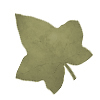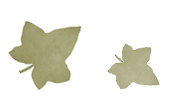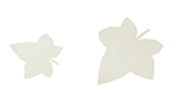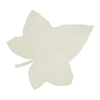|
Surviving
Radiation the Wise Woman Way
an article by Susun S. Weed
We
are adapted to survive mild exposures to radiation.
After all, the sun is a kind of controlled nuclear
bomb and it releases a lot of radiation. Of course,
this radiation, and man-made radiation, can also
cause cancer and a host of short- and long-term
health problems.
Whether you are worried about the radiation from
dental x-rays, a mammogram, or fallout, here are
some Wise Woman Ways to help you stay healthy. (If
you are using radioactive therapies in your cancer
treatment, there is a chapter full of information
specifically for you in Breast Cancer? Breast Health!
The Wise Woman Way.)
• Japanese researchers found that diets high
in carotenes significantly reduced DNA damage in
humans exposed to radiation. Supplements of beta-carotene
(or of vitamins C or E) did not show this effect.
Eating lots of orange and dark green foods (sweet
potatoes, winter squash, beets, carrots, kale, collards,
chard, and spinach, for example) can protect you
from radiation-induced cancers.
• Envision yourself and all your cells protected
from damage. (One woman wrapped herself in psychic
lead.)
• Guinea pigs bombarded with radiation lived
a lot longer if they ate broccoli or cabbage. All
cabbage family plants - including arugula, turnips,
radishes, cauliflower, mustard greens, bok choy,
Brussels sprouts, broccoli d'rappe, kale, collards,
and of course broccoli - protect your cells from
the damaging effects of radiation.
• Choose an image, an icon, something meaningful
to you, as a focusing agent. Put your affirmations,
blessings, prayers, visualizations, and healing
love into it, for easy access when you need help.
• Miso broth is the classic food for prevention
of radiation damage. Thereís twice the protection
if a quarter-ounce/5 grams of dried kelp seaweed
is added to the soup. In scientific studies, seaweed
was able to neutralize radioactive isotopes in the
human body. Researchers at McGill University say
radioactive strontium binds to the algin in brown
seaweeds to create sodium alginate, a compound easily
and harmlessly excreted. Common black tea exhibited
the same anti-radiation effects in several Japanese
studies.
• In Fighting Radiation and Chemical Pollutants
with Foods, Herbs, and Vitamins (Vitality, 1991),
Steven Schecter tells us that both black and green
tea showed "radioprotective effects" whether
taken before or after exposure to radiation. Among
other modes of operation, tea catechins absorb radioactive
isotopes and remove them from the body before they
do damage. The action is similar he says, to that
of sodium alginate (the "active ingredient"
in kelp seaweed).
• Eating any amount of reishii (a mushroom)
reduces damage from radiation.
• St. Joanís/John's wort oil protects
my skin from radiation damage. I use it as my only
sunscreen (and I am outside a lot) and find it not
only immediately effective in preventing and treating
sunburn, but even more protective with continuing
use over years.
• Burdock root (Arctium lappa) removes radioactive
isotopes from the body. A dose is 1-4 ounces/300-120
grams of cooked fresh root, up to a pint of infusion
daily, or several large spoonfuls of vinegar (but
only if made with fresh roots).
• Dried beans, especially lentils can reverse
DNA damage done by radiation. So can red clover
(Trifolium pratense) and astragalus (Astragalus
membranaceous) - two powerful members of the legume
(bean) family.
• Homeopathic remedies can be taken before
and after exposure to radiation: Plumbum (lead)
is said to help those who feel overwhelmed and in
need of protection. Belladonna is used to prevent
and relieve radiation burns and pains - even long
after the immediate exposure.
• Selenium protects DNA from radiation damage
and helps prevent damage to the skin surface, too.
Get plenty of selenium by eating a daily dose of
2 cups/500 ml of nettle infusion, one-half ounce/15
g kelp, 2 ounces/60 g cooked burdock root, or 1
cup/250 ml organic yogurt daily. Shellfish, green
and black teas, and garlic contain significant amounts
of selenium, as do many mushrooms. The best sources
however are nettles (2200 mcg per 100 grams), kelp
(1700 mcg/100 g), burdock (1400 mcg/100 g), catnip
(Nepeta cataria), ginseng, Siberian ginseng, and
astragalus.
• In clinical trial with humans, those who
took ginseng extract (Panax quinquefolium) for thirty
days following exposure to radiation showed hastened
recovery from injuries to their bone marrow, organs,
skin, and blood cells according to Paul Bergner
in The Healing Power of Ginseng, The Enlightened
Person's Guide, Prima, 1996. He quotes Japanese
researcher Dr M. Yonezawa as saying that "ginseng
appears to be the most useful agent available for
protection against radiation damage."
• It is important to keep yourself well nourished
if you are exposed to radiation. Make it a habit
to drink at least two big cups of nourishing herbal
infusion daily. Nettles, red clover, and violet
leaves supply generous amounts of the nutrients
you need most: protein and minerals, especially
potassium and zinc.
For best results, do not use capsules of the herbs
mentioned in this article. Instead, cook with them
(kelp, astragalus, Siberian ginseng, ginseng, reishii,
and burdock), brew nourishing herbal infusions with
them (nettles, red clover, astragalus, burdock,
catnip, and ginseng), make mineral-rich vinegars
with them (nettles, burdock, catnip, ginseng, and
astragalus), or take a high-quality non-standardized
tincture of them (burdock, ginseng, Siberian ginseng,
astragalus).
To make a nourishing herbal infusion:
• Put one ounce of dried herb into a quart
jar; fill jar to the top with boiling water and
cap tightly.
• Strain after 4-8 hours and drink hot or cold.
• Refrigerate what you don't drink right away;
drink that within a day.
To make a vinegar:
• Fill any size jar with fresh herb (best!!)
or one quarter full of dried herb (not nearly so
good).
• Pour room temperature apple cider vinegar
over the herb, filling jar to the top.
• Cover with plastic wrap or a cork.
• Label with date and name of plant.
• Let sit for six weeks.
• Decant into a pretty bottle and use to season
soups, beans, and salads.
This is the Wise Woman Way the world 'round. Take
good care of yourselves. Green blessings to all.
Learn
more at www.susunweed.com or write to:Susun
Weed
PO Box 64
Woodstock,
NY 12498
Fax: 1-845-246-8081
Visit
Susun Weed at: www.susunweed.com and www.ashtreepublishing.com
For permission to reprint this article, contact
: susunweed@herbshealing.com
Vibrant, passionate,
and involved, Susun Weed has garnered an international
reputation for her groundbreaking lectures, teachings,
and writings on health and nutrition. She challenges
conventional medical approaches with humor, insight,
and her vast encyclopedic knowledge of herbal medicine.
Unabashedly pro-woman, her animated and enthusiastic
lectures are engaging and often profoundly provocative.
Susun is one
of America's best-known authorities on herbal medicine
and natural approaches to women's health. Her four
best-selling books are recommended by expert herbalists
and well-known physicians and are used and cherished
by millions of women around the world. Learn more
at www.susunweed.com
This
article is © copyright Susun
S. Weed 2004 - Republished here with kind permission.
Legal
Disclaimer: This content is not intended
to replace conventional medical treatment. Any suggestions
made and all herbs listed are not intended to diagnose,
treat, cure or prevent any disease, condition or
symptom. Personal directions and use should be provided
by a clinical herbalist or other qualified healthcare
practitioner with a specific formula for you. All
material on this website/email is provided for general
information purposes only and should not be considered
medical advice or consultation. Contact a reputable
healthcare practitioner if you are in need of medical
care. Exercise self-empowerment by seeking a second
opinion. |
|












